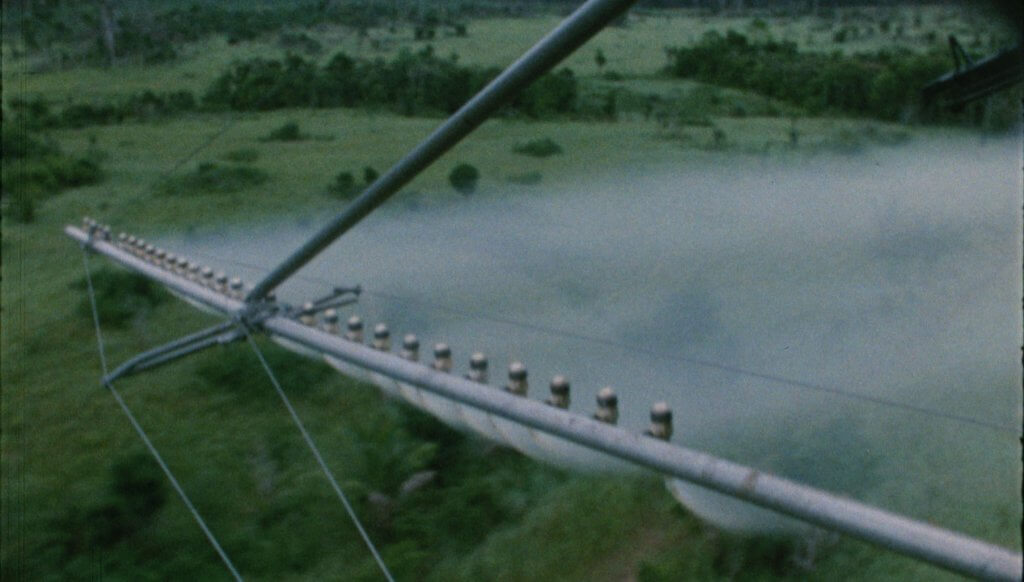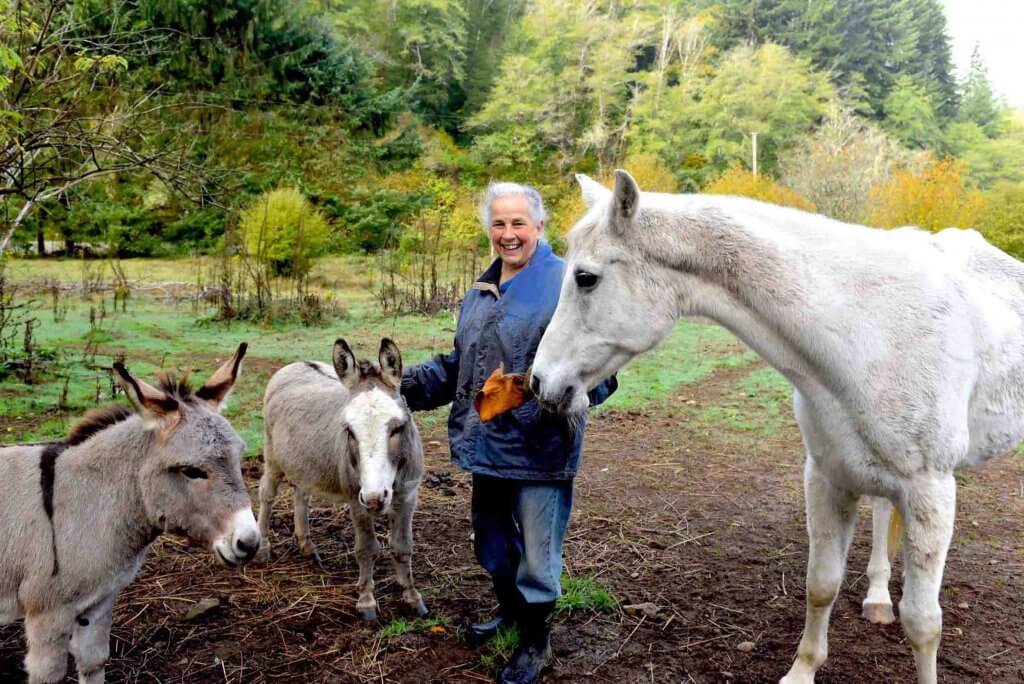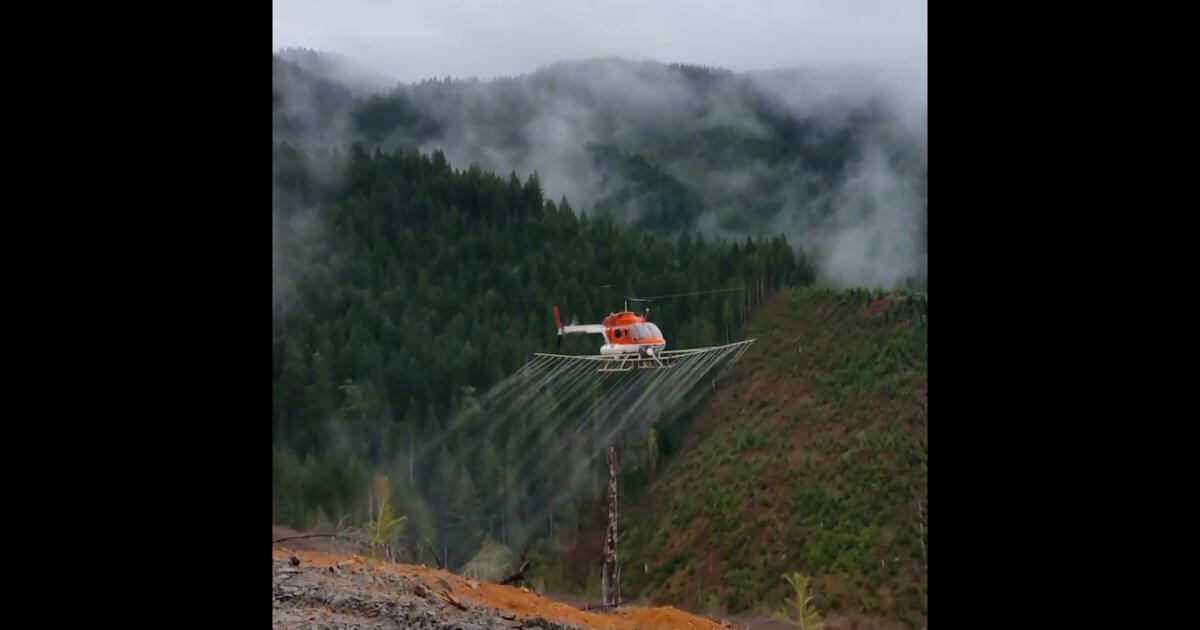By Jeff Cornell
A new documentary reveals the United States’ history of using potentially cancer-causing herbicides and takes a deep dive into the use of Agent Orange in Vietnam.
Read More
Meanwhile, Carol Van Strum is a pioneer in exposing the continued use of toxic herbicides on clear cut forests in Oregon. Over decades, she has witnessed the spraying first-hand and unearthed documents showing how toxic these sprays are and how the government and chemical companies did nothing while she watched her children get sick, animals die and saw an uptick in some grossly deformed wildlife.
Director Alan Adelson and his partner/wife Kate Taverna have been working on this film for over a decade.
"I was initially really reluctant to make this film feeling as if Agent Orange was an old story,” Adelson explains.
After seeing photos of deformed children with serious birth defects in Vietnam, the former Wall Street Journal writer — who made worldwide headlines revealing the disappearance of enriched plutonium from a nuclear reprocessing plant — says his investigative journalist curiosity was piqued.
"My instinct was telling me if you could prove that these saddest of human beings were the result of conscious corporate decisions, directed by the profit motive, then as old as the story might be it has the potential to be corrective and a cautionary tale for our society today,” Adelson says. Thus began a decade long investigation into Agent Orange and other deadly herbicides.
What he discovered is appalling. The film is rife with lies, cover-ups, government conspiracies, intimidation and more.
"The EPA in my opinion, being all too cooperative with the chemical industry, has not done what it could to evaluate all these chemicals," Adelson explains. "The conspiratorial voices of corporate executives discussing with one another how highly contaminated their product was and what should they do about it. The American public and the world society should know that human well-being was being deliberately sacrificed for the sake of profit and that this example, Agent Orange, would be a cautionary tale that should be told."
Former Senate Majority Leader Thomas Daschle is quoted in the film saying the cover up over the use of toxic sprays "went to far higher levels then I would like to admit." Adelson frustratingly points out, "So, here was a leader in the U.S. government, not only acknowledging it, but expressing that it had gone to the top of our policy makers." Adelson goes on to say that the Environmental Protection Agency needs to "really step up to test these potentially toxic chemicals that are being dispersed by the ton and washing down into people's water supplies."

Cancers Caused By Agent Orange
Agent Orange, a compound made by combining equal parts of two herbicides 2, 4, 5-T and 2, 4-D, is associated with many different kinds of cancers, immune deficiencies, reproductive illnesses and severe birth defects. While 2, 4, 5-T are no longer sprayed, 2, 4-D is still widely used and both contain dioxin, which is the toxin that causes cancer, birth defects, and severe deformities in wildlife.
Since the passing of the Agent Orange Act in 1991, the United States Department of Veterans Affairs keeps a presumptive list of conditions that the government will take responsibility for with regard to U.S. veterans who were exposed to the deadly compound. The list has grown over years and contains, but is not limited to, bladder cancer, respiratory cancers including lung cancer, Hodgkin’s disease, multiple myeloma, non-Hodgkin’s lymphoma, prostate cancer, and a range of soft tissue sarcomas.
In 1983, the United States Department of Veterans Affairs settled a class action lawsuit against chemical companies for $180 million dollars, the largest settlement of its kind at the time, but only giving the 52,000 Vietnam veterans approximately $3,800.00 each.
‘We Have The Right to Protect Ourselves from Being Poisoned’
There are countless examples of people who have been affected by toxic herbicides. Back in the 1980s, Eugene, Oregon resident Melyse Connolly made headlines when she contacted the government to test her water supply, which was contaminated by the spraying. Two men came and took samples and she never heard from them again. Sadly, Connolly passed away from brain, lung and breast cancers at the age of 32.
"That situation in Oregon is fraught with such galling ironies, I think the most important one to recognize, and it’s by no means limited to Oregon at all, has to do with this legislative dynamic, which they call preemption,” Adelson says. “Basically, it's taking the power to control their environment away from local communities and assigning that power instead to state legislators, who are far more susceptible to lobbying. In Lincoln County, Oregon the community rights organization won this very, very difficult electoral battle to ban the aerial spraying of herbicides and they won they won by just a few votes."
So, for 27 months the aerial spraying was banned and ceased, but it has since been appealed and overturned. The spraying continues for now and the fight goes on for Carol Van Stram and her Oregon comrades, who are trying desperately to pass new legislation that will give the local communities the power back to control their environment.

In a recent webinar about the film and the use of herbicides, Van Strum said, "We have the right to protect ourselves from being poisoned." But, in fact they don’t. There is an Oregon law that states you cannot sue a company for poisoning unless it results in death.
Madame Tran To Nga's Fight
Meanwhile, back in France, Madame Tran's seven-year case against the American chemical industry at the Tribunal de Grande Instance de Paris was thrown out of the court on May 11. The Tribunal ruled that it did not have jurisdiction to judge a case involving the U.S. government's wartime actions. Tran plans to appeal the case.
"If Madame Tran wins her case, making her the only Vietnamese person to have held the chemical companies and chemical manufacturers accountable, it’ll be cataclysmic,” Adelson says. “Whether there will be the establishment of a binding legal precedent is very debatable but Tran and her lawyers believe with confidence that if they prevail in the case, whether or not it will provide a precedent, it will provide an example and affirmation of the credibility of future claims that will definitely have chastening and punitive effects on the chemical companies."
Making this film has opened Alan Adelson's mind in many ways. He says to avoid potentially poisoned food you must be "very strict in your diet." Adelson recommends eating only "organically raised foods" and to drink "only pure beverages." He continues, "We're seeing coffee and cold water which is riddled with microscopic plastic fragments and plastic carries dioxin," the toxic compound found in herbicides.
"The film is prompting a very intense reaction," Adelson explains. "People are outraged. They're infuriated. They're depressed. They're saddened. They continue to ask how can something so contrary to human values go on this way and how can it continue to go on after the results we’re seeing."
Learn more about SurvivorNet's rigorous medical review process.

